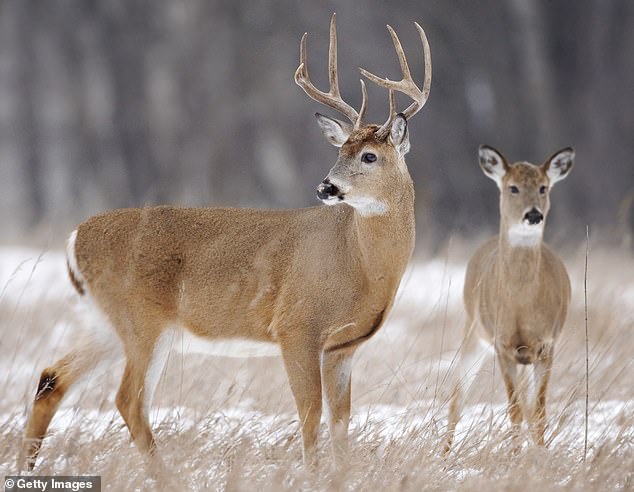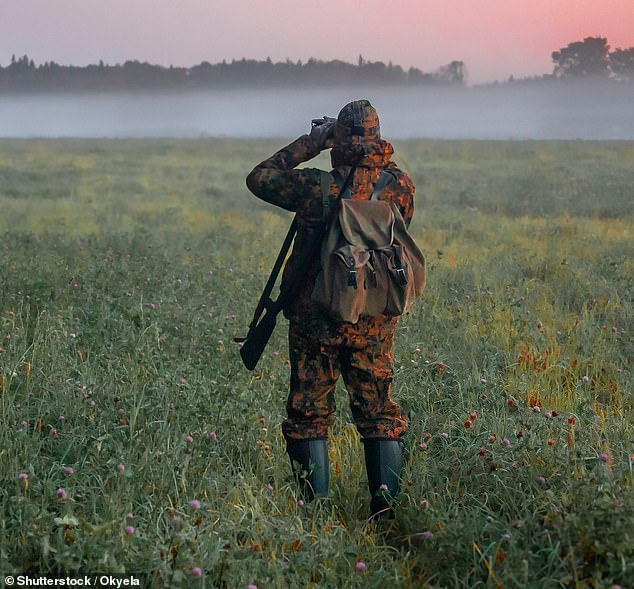Doctors have some life-saving tips for hunters this season: Don’t suit up until you’ve had your checkup.
At least three Michigan hunters, ages 57, 65 and 83, have been found dead on nature trails within days of each other due to serious heart attacks since the state’s deer hunting season began less than two weeks ago.
Dr. William Morrone, medical examiner for the counties where the dead hunters were found, said, “I have never before seen three people die in 48 hours from heart attacks while deer hunting.”
Hunters may not find their hobby particularly strenuous and thousands of them love it as a way to relax and commune with nature.
But exposure to the cold (the average high temperature in November in this area ranges from 44 to 48 degrees) increases the risk of developing a dangerous blood clot in the leg that could break off and migrate to the lungs.
The combination of adrenaline resulting from the injection with exposure to cold also increases the risk of abnormal heart rhythms that can cause sudden cardiac arrest.
A strenuous walk back to the car dragging or carrying a 100- to 300-pound deer can contribute to an already stressed cardiovascular system.
Heart health experts urge hunters to get a health checkup before the season, as exposure to cold, adrenaline and strenuous activity, such as carrying a deer, can increase the risk of blood clots, abnormal heart rhythms and sudden cardiac arrest.
The official two-week deer hunting season, according to the Michigan Department of Natural Resources, began Nov. 15.
About 600,000 Michiganders are licensed to hunt deer and look forward to November each year.
Dr. Morron suggested that for some people, personal safety and fitness may be a lower priority than earning a pair of souvenir antlers.
He said, “Deer season comes and bam: I’ve got a rifle, I’ve got a backpack, and I’m trudging through the woods.”
The DNR uses hunting as a tool to control the state’s growing deer population. Prey animals, such as deer, can become overabundant in an area where most of their natural predators (wolves, bears, etc.) have moved away or died due primarily to human expansion.
Too many deer means fewer food sources and habitat for other animals, which must compete against larger forces for the same amount of resources.
Suppressing the deer population is intended to keep the ecosystem in balance.
Hunting is also a tool used to limit the spread of animal-borne diseases that could affect other animals in the food chain. Deer are susceptible to chronic wasting disease (CWD), which causes fatal brain damage.
There is there is no confirmed evidence that CWD can be transmitted to humans. But it is linked to other prion diseases that have had the potential to infect people, raising concerns about possible risks, although the evidence for human CWD infection is inconclusive.
Dr. Morrone noted that hunters, of which there are thousands in the state, would have to meet a physical fitness requirement to obtain their Michigan hunting license.
Hunting usually involves going out in the cold hours of the morning on trails near wooded areas, looking for hoof prints or scrapes in the ground where deer have marked their territory.
The hunter must then find a perch, probably in the shade under tree cover, and wait in cold stillness for hours for a target to appear, while his blood vessels constrict to preserve heat.
When a deer or doe appears, the hunter feels a surge of adrenaline and shoots, causing heart rate and blood pressure to increase.

Three hunters in Michigan, ages 57, 65 and 83, were found dead on nature trails within days of each other from fatal heart attacks since the start of the state’s deer hunting season less than two weeks ago.
Dr. Bradley Serwer, a Cincinatti cardiologist, said Fox: “Once a hunter hits the deer, he has to track it, often over a long distance over rugged terrain.”
Trudging difficult terrain in the cold also demands more oxygen than the body would need at rest, and the body has to work harder to maintain its core temperature, increasing the risk that the heart will not receive the oxygen it needs to function. .
Dr. Serwer added, “When the deer is found, it must be transported back to a vehicle. Typically, this involves dragging a 100- to 200-pound animal over varied terrain.
The combined stress on the heart can disrupt the regular rhythm at which the heart beats, controlled by electrical impulses.
When these pulses are altered, the heart may beat too fast, too slow, or in an irregular pattern, known as an arrhythmia.
Increased blood pressure and oxygen demand can also cause fatty deposits in the arteries to rupture, causing clots in the coronary arteries and leading to a heart attack.
Dr. Eric Lavonas, emergency physician at Denver Health and American Heart Association volunteer, saying: ‘Every year, and as we have seen in the headlines recently, some hunters suffer heart attacks or strokes while in the woods.
‘Heart attacks and strokes can occur even in people who appear to be physically fit. Listen to your body, take breaks if necessary and have a plan in case of emergencies.’
He added that hunters should never go out alone and, if cell service is not available, use walkie-talkies to stay in touch with other members of their group.
“While hunting can be a very strenuous activity, taking a few precautions and being prepared can make all the difference in the safety of the experience.”


